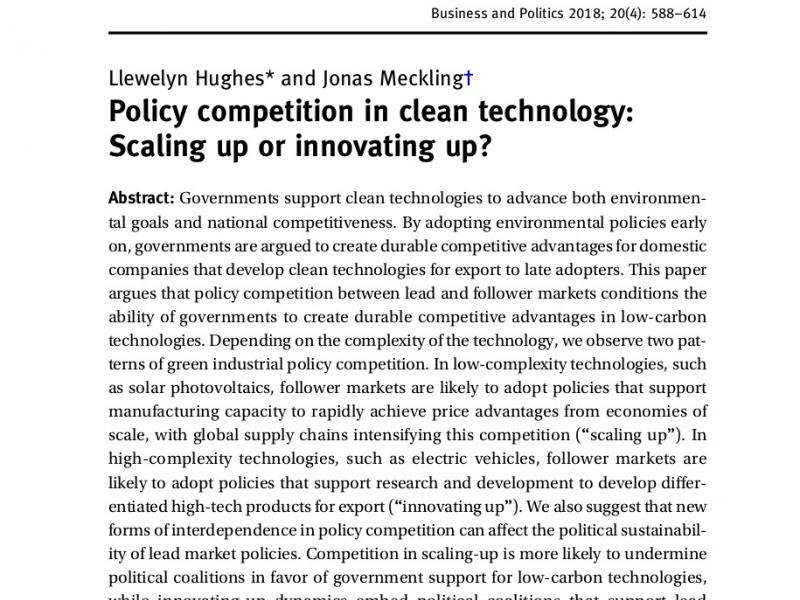Abstract
"Governments support clean technologies to advance both environmental goals and national competitiveness. By adopting environmental policies early on, governments are argued to create durable competitive advantages for domestic companies that develop clean technologies for export to late adopters. This paper argues that policy competition between lead and follower markets conditions the ability of governments to create durable competitive advantages in low-carbon technologies. Depending on the complexity of the technology, we observe two patterns of green industrial policy competition. In low-complexity technologies, such as solar photovoltaics, follower markets are likely to adopt policies that support manufacturing capacity to rapidly achieve price advantages from economies of scale, with global supply chains intensifying this competition (“scaling up”). In high-complexity technologies, such as electric vehicles, follower markets are likely to adopt policies that support research and development to develop differentiated high-tech products for export (“innovating up”). We also suggest that new forms of interdependence in policy competition can affect the political sustainability of lead market policies. Competition in scaling-up is more likely to undermine political coalitions in favor of government support for low-carbon technologies, while innovating-up dynamics embed political coalitions that support lead market policies for low-carbon technologies" (Hughes and Meckling 2018).
Hughes L and Meckling J, “Policy Competition in Clean Technology: Scaling Up or Innovating Up?” Business & Politics Vol. 20, No. 4 (2018), 588-614.



